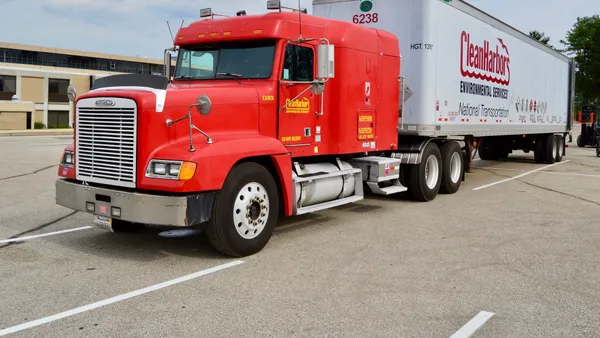Dive Brief:
- Commissioners in Carroll County, MD will soon consider whether to begin accepting credit cards at the Northern Landfill, as reported by the Carroll County Times. The main question is if the average 3% transaction fee, charged by most credit card companies, will be paid by the county or the customers.
- The commissioners will also consider implementing a pay-as-you-throw system at the landfill to help extend its capacity. Early estimates show that this could reduce current disposal costs from $56 per ton to as low as $25 or $15 per ton.
- This would only apply to residents that drop off at the landfill, not to anyone using subscription-based curbside services. Though county commissioners predict that overall savings from the landfill change could lead companies to lower their subscription rates.
Dive Insight:
As seen with the trend toward companies using phone apps to accept waste transactions, customers are becoming more interested in having a range of payment options. Coupled with a pay-as-you-throw system, the acceptance of credit cards could make the process feel more convenient and lead to more diversion. Credit card transactions would also make it easier to track the type of fraudulent activity conducted through cash payments seen at other landfills in the past.
Like many local governments, the county has been considering pay-as-you-throw for the past decade and is well aware of the potential benefits. The logistics of making this shift, and the behavioral changes involved, can seem daunting for a system of any size. Yet municipalities around the country have found similar systems to be effective in reducing disposal costs and per capita waste generation.
According to a recent report, Maryland has an estimated 31 years of capacity remaining if current disposal trends continue. While capacity isn't an imminent problem at the Northern Landfill it does have less space than others in the state. Ongoing statewide discussions about organics diversion could improve this situation, but in the meantime any local efforts to reduce disposal can also make a difference.











